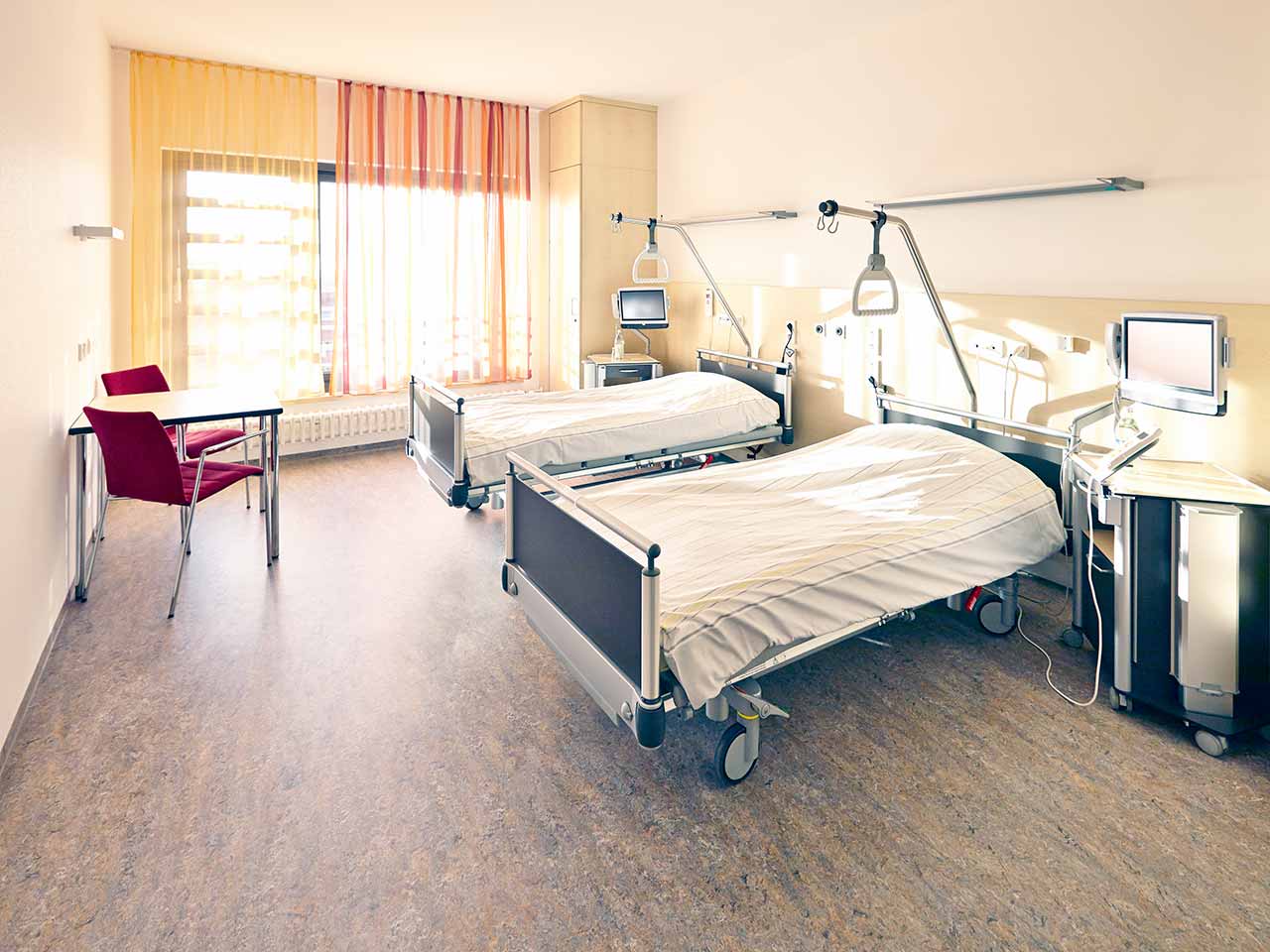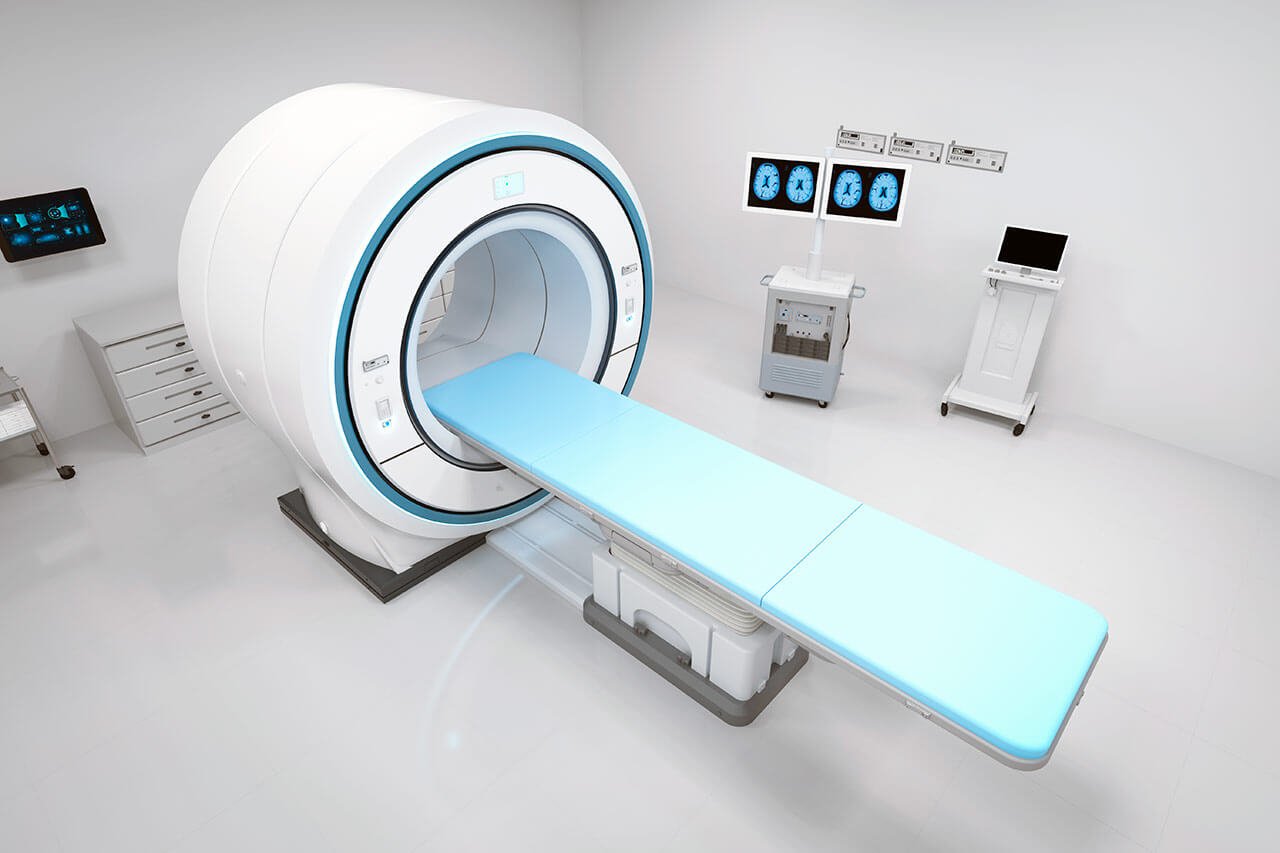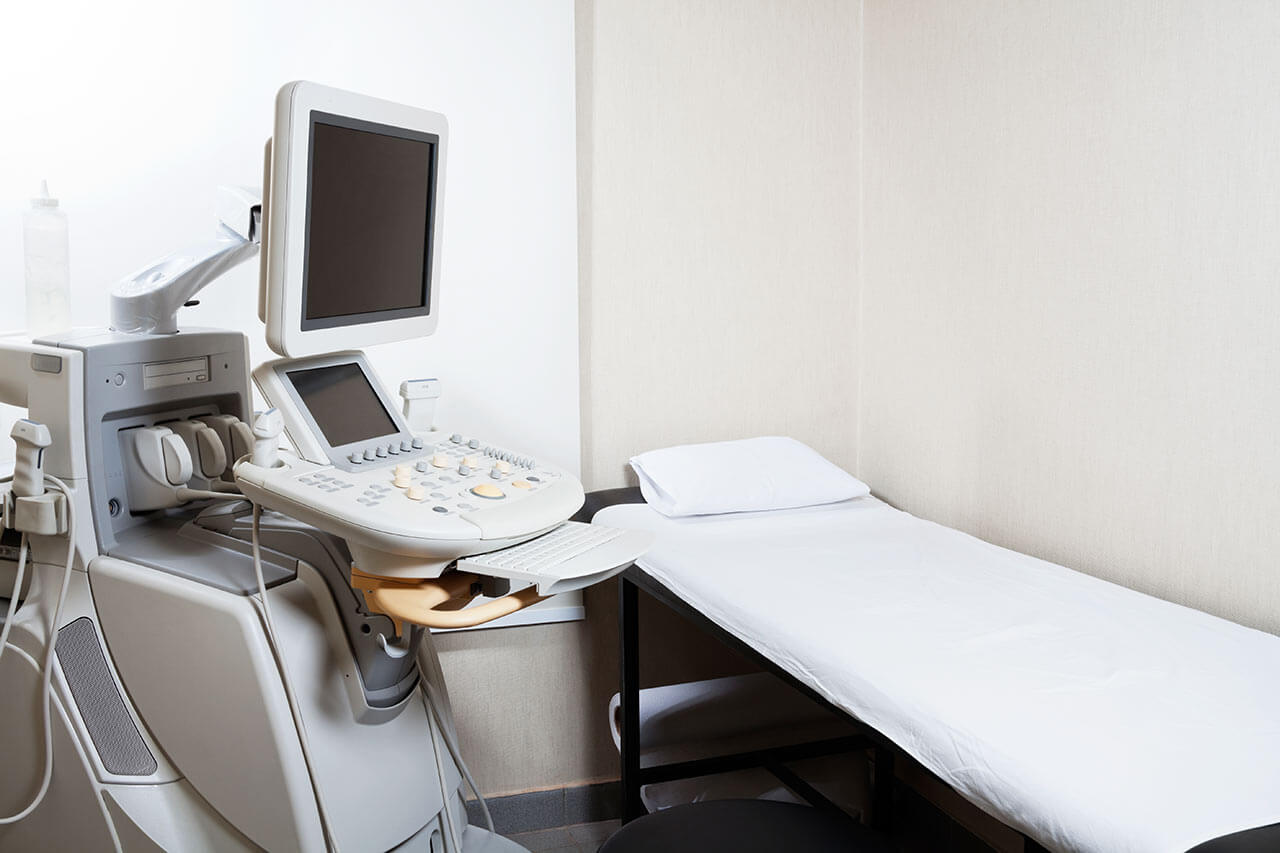
The program includes:
- Initial presentation in the clinic
- clinical history taking
- review of medical records
- physical examination
- laboratory tests:
- complete blood count
- biochemical blood test
- inflammation markers (CRP, ESR)
- blood coagulation analysis (aPTT, PT, INR)
- ultrasound of the abdomen
- gastroscopy with H.pylori test, biopsy
- nursing services
- consultation of related specialists
- treatment by chief physician and all leading experts
- explanation of individual treatment plan
Required documents
- Medical records
- Esophagogastroduodenoscopy (EGD) (if available)
Service
You may also book:
 BookingHealth Price from:
BookingHealth Price from:
About the department
The Department of Pediatric Gastroenterology and Hepatology at the University Hospital Ulm specializes in the diagnostics and treatment of gastrointestinal diseases in children of all age groups. The doctors at the medical facility focus on young patients with colon, liver, and pancreatic pathologies. The most common conditions in clinical practice include chronic inflammatory bowel disease, bowel obstruction, short bowel syndrome, immune and endocrine diseases affecting the gastrointestinal organs, gastroesophageal reflux disease, pancreatitis, and hepatitis. The department also provides treatment for rare gastrointestinal conditions in children and adolescents. More than 1,000 young patients receive medical care in the department every year. The department's specialists have excellent diagnostic options. They perform endoscopic examinations, functional gastrointestinal diagnostics, and ultrasound examinations. As a rule, the child is diagnosed on an outpatient basis. During the treatment, effective drug therapy regimens are used, and endoscopic procedures are performed. Should surgical intervention be required, pediatric surgeons and other specialists from related medical fields are involved in the process. The health of young patients is in the safe hands of highly qualified doctors who prioritize the child's health and comfort during the entire period of their stay at the medical facility. The Head Physician of the department is Dr. med. Henrike Zinngrebe.
The department's pediatric gastroenterologists are deservedly proud of their successful experience in the treatment of inflammatory bowel disease (IBD), such as Crohn's disease and ulcerative colitis. Pathologies involve the inflammation of all parts of the intestine, and in some cases, the disease may affect other gastrointestinal organs. The main manifestations of inflammatory bowel disease are abdominal pain, bloating, diarrhea with blood in the stool, and false urges for defecation. The child also experiences general weakness, malaise, loss of appetite, and fever. The diagnosis of a child with suspected Crohn's disease or ulcerative colitis begins with the study of complaints and medical history and a clinical examination. Laboratory tests (a complete blood count, a biochemical blood test, a coagulogram, a urinalysis, and a stool test), imaging examinations (magnetic resonance enterography and contrast-enhanced ultrasound), and endoscopic examinations (colonoscopy, sigmoidoscopy, and capsule endoscopy) are then conducted. With the confirmed diagnosis of IBD, the department's specialists elaborate a comprehensive treatment regimen, taking into account the individual needs of a young patient. The first-line treatment is diet, particularly with strict dietary restrictions during exacerbations of inflammatory processes in the intestine. An integral method of combating IBD is also drug therapy with nonsteroidal anti-inflammatory drugs, glucocorticoids, immunosuppressants, and other drugs.
The medical facility also regularly admits children with short bowel syndrome. This disease impairs the ability of the child's body to fully absorb nutrients from food due to the absence of segments of the small intestine or severe impairment of its function. The main manifestations of pathology include diarrhea, dehydration, spasms, general weakness, pathological weight loss, nausea, and vomiting. The diagnostic process involves a clinical examination, blood, urine, and stool tests, abdominal ultrasound scans, colonoscopy, and gastroscopy. Upon confirming the diagnosis based on preliminary diagnostics, the doctor will elaborate a treatment regimen aimed at normalizing nutrient absorption in the intestine. The specialists adjust the diet of the child, completely excluding sweets, carbonated drinks, juices, pickles, spices, smoked, pickled, and canned foods, as well as fried foods, fatty meats, and fish. Drug therapy with the appropriate groups of drugs is carried out for symptom relief. In some clinical cases, parenteral (intravenous) nutrition may be required. In the most complex cases, restoration of normal bowel function can only be achieved through surgery that is performed by highly specialized surgeons.
The department's medical team also treats pancreatic and liver diseases. A special focus is on medical care for children with hereditary pancreatitis, autoimmune pancreatitis, pancreatic insufficiency due to cystic fibrosis, Shwachman syndrome, Pearson syndrome, viral hepatitis, autoimmune hepatitis, and Wilson's disease. The above-mentioned pathologies are most often treated on an inpatient basis under constant medical supervision. Effective therapeutic outcomes are ensured through comprehensive treatment that combines an individually prescribed diet, bed rest, and drug therapy (oral medications and intravenous drug administration).
The department diagnoses and treats the following gastrointestinal diseases in children and adolescents:
- Gastrointestinal diseases
- Inflammatory bowel disease: Crohn's disease and ulcerative colitis
- Short bowel syndrome
- Chronic bowel obstruction
- Severe functional bowel diseases
- Infectious gastrointestinal diseases
- Food allergies (for example, cow's milk allergy)
- Malabsorption and maldigestion syndromes
- Lactose intolerance and fructose malabsorption
- Gastroesophageal reflux disease
- Intestinal motility disorders: Hirschsprung's disease, chronic intestinal pseudo-obstruction, and chronic constipation
- Coeliac disease
- Immunologic and endocrine diseases, accompanied by lesions of the digestive system
- Pancreatic diseases
- Hereditary pancreatitis
- Autoimmune pancreatitis
- Pancreatic insufficiency due to cystic fibrosis, Shwachman syndrome, or Pearson syndrome
- Liver and bile duct diseases
- Viral hepatitis
- Autoimmune hepatitis
- Primary sclerosing cholangitis
- Wilson's disease
- Immunologic and endocrine diseases accompanied by liver lesions
- Other diseases
The department's range of diagnostic and therapeutic services includes the following:
- Diagnostic services
- Imaging examinations
- High-resolution ultrasound scans of the abdominal organs
- Functional diagnostics
- Hydrogen breath test for fructose, lactose, and glucose
- 13C breath test for Helicobacter pylori
- Esophageal impedance pH monitoring
- Biopsy
- Liver biopsy
- Small bowel biopsy
- Endoscopic examinations
- Gastroscopy
- Colonoscopy
- Rectoscopy
- Capsule endoscopy
- Imaging examinations
- Therapeutic services
- Drug therapy
- Diet therapy
- Endoscopic procedures
- Gastroscopy
- Colonoscopy
- Rectoscopy
- Polypectomy
- Percutaneous endoscopic gastrostomy
- Percutaneous endoscopic jejunostomy
- Other diagnostic and treatment methods
About hospital
The University Hospital Ulm is an advanced medical complex that provides patients with high-class medical care using the very latest scientific achievements. The medical facility has been performing successful clinical activities for more than 40 years and has long earned an excellent reputation throughout Europe. The hospital regularly demonstrates high treatment success rates, takes an active part in the training of medical students, and works tirelessly on promising research projects.
The university hospital consists of 29 specialized departments and 16 scientific institutes, where more than 7,000 highly qualified employees work for the benefit of their patients. More than 55,000 inpatients and about 300,000 outpatients are treated here every year. The hospital has 1,274 beds. The medical team of the hospital is focused on providing personalized medical services using the most modern and sparing diagnostic and treatment methods.
The University Hospital Ulm is the largest medical complex in the region, and practically all areas of modern medicine are represented here. Transplantology and oncology are among the priority areas of clinical activity in the medical facility. The hospital holds leading positions in the world in bone marrow transplantation. In addition, the hospital has advanced experience in cancer treatment. The Comprehensive Cancer Center is recognized as the leading facility of this kind in the country, and it is certified by the German Cancer Society (DKG). It provides effective treatment for various types of cancer. The center also offers innovative CAR T-cell therapy. In addition, the Cancer Center is actively engaged in research activities to improve available treatment methods and develop innovative therapeutic techniques to fight cancer.
Along with the use of advanced technologies, doctors show respect, understanding, and a humane attitude toward the patient. The medical team includes competent psychologists, who are always ready to provide assistance and support to the patients and their families during the therapeutic process.
Photo: (с) depositphotos
Accommodation in hospital
Patients rooms
The patients of the University Hospital Ulm live in comfortable single and double rooms with a modern design and light colors. All patient rooms have an ensuite bathroom with a toilet and a shower. The patient room furnishings include a comfortable automatically adjustable bed, a bedside table, a wardrobe, a table and chairs, a telephone, a radio, and a TV. Wi-Fi access is also available in patient rooms.
The hospital also offers enhanced-comfort rooms, which additionally have a safe, a refrigerator, and upholstered furniture. The bathroom in the enhanced-comfort room has changeable towels, a cosmetic mirror, a hairdryer, and toiletries.
Meals and Menus
Patients and their accompanying person are offered three meals a day: breakfast, lunch, and dinner. The patient and accompanying person have a choice of three menus every day, including a vegetarian menu. Patients staying in the enhanced-comfort rooms are also offered light snacks, fruits, desserts, and hot and cold drinks in the comfortable lounge area.
If, for some reason, you do not eat all the foods, you will be offered an individual menu. Please inform the medical staff about your dietary preferences prior to treatment.
Further details
Standard rooms include:
![]() Shower
Shower
![]() Toilet
Toilet
![]() Wi-Fi
Wi-Fi
![]() TV
TV
Religion
The hospital has a chapel where Catholic and Protestant services are held weekly. The services are also broadcast on the internal television channel of the hospital. The chapel is open 24 hours a day for visits and prayers.
The services of other religious representatives are available upon request.
Accompanying person
Your accompanying person may stay with you in your patient room or at the hotel of your choice during the inpatient program.
Hotel
You may stay at the hotel of your choice during the outpatient program. Our managers will support you for selecting the best option.






